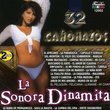| All Artists: Ludwig van Beethoven, Herbert von Karajan, Berlin Philharmonic Orchestra Title: Beethoven: Symphonies Nos. 4 & 7 Members Wishing: 0 Total Copies: 0 Label: Deutsche Grammophon Release Date: 10/12/1993 Genre: Classical Styles: Historical Periods, Classical (c.1770-1830), Modern, 20th, & 21st Century, Symphonies Number of Discs: 1 SwapaCD Credits: 1 UPC: 028943900324 |
Search - Ludwig van Beethoven, Herbert von Karajan, Berlin Philharmonic Orchestra :: Beethoven: Symphonies Nos. 4 & 7
 | Ludwig van Beethoven, Herbert von Karajan, Berlin Philharmonic Orchestra Beethoven: Symphonies Nos. 4 & 7 Genre: Classical
|
Larger Image |
CD DetailsSimilar CDs
Similarly Requested CDs
|
CD ReviewsExcellent Recordings of Both Works Joe Jewell | 11/11/2000 (5 out of 5 stars) "I've yet to find a recording of Beethoven's Seventh that I prefer to this one. Strangely enough, I've never liked performances that are considered by critics to be better. Most take the finale at a slower tempo and my personal feeling is that the faster tempo Karajan takes works much better. It is an unrestrained explosion of energy that captures perfectly the exhuberance and excitement of the work and to take it slower is a letdown. I would have preferred a lighter touch throughout, but this is the Berlin Philharmonic after all, and a rich, full, and somewhat heavy sound is their trademark." Superficial And Disappointing From The Master Karajan dv_forever | Michigan, USA | 08/05/2006 (3 out of 5 stars) "I am a big fan of Karajan, he's overall my favorite conductor, but just because I admire the man for many of his achievements, that feeling does not infect my objectivity and critical judgement. Here is a case in point, two symphonies from his last Beethoven cycle, the digital one from the 1980's. There is a real element of slickness and emotional coolness about the whole affair. To be fair, the 4th symphony fairs quite well overall, the introduction to the opening movement doesn't have all that much mystery but really, how many conductors since Furtwangler even give large thought to the intricate mysteries that lie at the heart of Beethoven's symphonic output? After the intro, Karajan explodes into the allegro, very dramatic indeed and the whole movement is done with vigor and life. The adagio is a bit detached but it's nothing new from Karajan. The last two movements go by well even though I can't understand Karajan's continual insistence to drop the final movement's exposition repeat! Yes, in every cycle Karajan recorded, he dropped this rather innocuous repeat which is only 1:30 in length! Furtwangler was always wise to keep this last repeat intact. Both Karajan and Furtwangler dropped the first movement repeat and I respect their decision there, that was the fashion of the day. Moving forward to the 7th symphony and you get your problems. This is the kind of superficial performance that Karajan's hateful critics attack him for and this time they are right! All the timings are basically the same as the earlier cycles from the 60's and 70's but this 7th from the 80's is comparatively lackluster when judged alongside the version from the 60s. Here are a few glaring examples. The allegretto opens up like slush, it is so smoothed over that you can't even hear the famous rhythm! The Penguin Guide went so far as mention this defect in their review as well. The allegretto in Karajan's hands was always lacking in emotional depth, every version he ever made was in the mold of Toscanini. I much prefer the love, depth and gravity a conductor like Furtwangler brought to this beloved symphonic movement. A recent fascinating 7th symphony by Christian Thielemann also took the Furtwangler approach of the slow tempo in the allegretto. I say to hell with the period instrument hacks and their glibness in this beautiful testament to Beethoven's art! Onto the finale, the last disappointment here. Initially you might find the fast tempo and explosive attack very exciting, however if compared to Karajan's 60's version which is available in terrific remastered sound in the Complete Beethoven Edition Volume 1 as well as on SACD, you will notice major differences. Here on Karajan Gold, the horns are much more recessed and so is the timpani, the recording is not well defined and what you get is a big, fat juicy mess instead of the bolts of lighting that rang out in the earlier Karajan record. In that 60's account the horns leap out of the orchestra and make you smile and the timpani actually make an impact, it has some aural distinction unlike the record you're looking at here. Overall, this digital cycle has a very intense Eroica, on the same level as the famous early 60's cycle. This digital cycle also has a massively invigorating 8th symphony. As far as the rest are concerned, Karajan has done better before, he really has." Karajan's great Seventh is as good as ever in digital sound Santa Fe Listener | Santa Fe, NM USA | 07/14/2006 (5 out of 5 stars) "Karajan's late digital cycle of Beethoven symphonies hasn't gotten much love from critics, but in many cases his interpretations are unchanged from earlier years. That's certainly true of the Seventh, which Karajan made a specialty in his long career. His 1963 account, often considered a landmark along with Carlos Kleier's a decade later, is duplicated in its entirety here. We get the same rhythmic vitality, a slightly faster Allegretto, and astonishing virtuosity in the swirling finale. The good news is that DG's sonics, now remastered for the Karajan Gold edition, are exceptionally good, far better than the Sixties analog sound of the earlier version.
Karajan's Fourth is just as fine. It's authoritative and yet nimble and vivacious. By the Eighties he was no longer a modernist in Beethoven as he had been in the era of Furtwangler--his penchant for leaner textures and faster tempos had been adopted by dozens of othe conductors and ultimately owed its origins to Toscanini. But the Fourth remains fresh, and in improved sound it, too, goes ahead of its Sixties predecessor." |

 Track Listings (8) - Disc #1
Track Listings (8) - Disc #1











